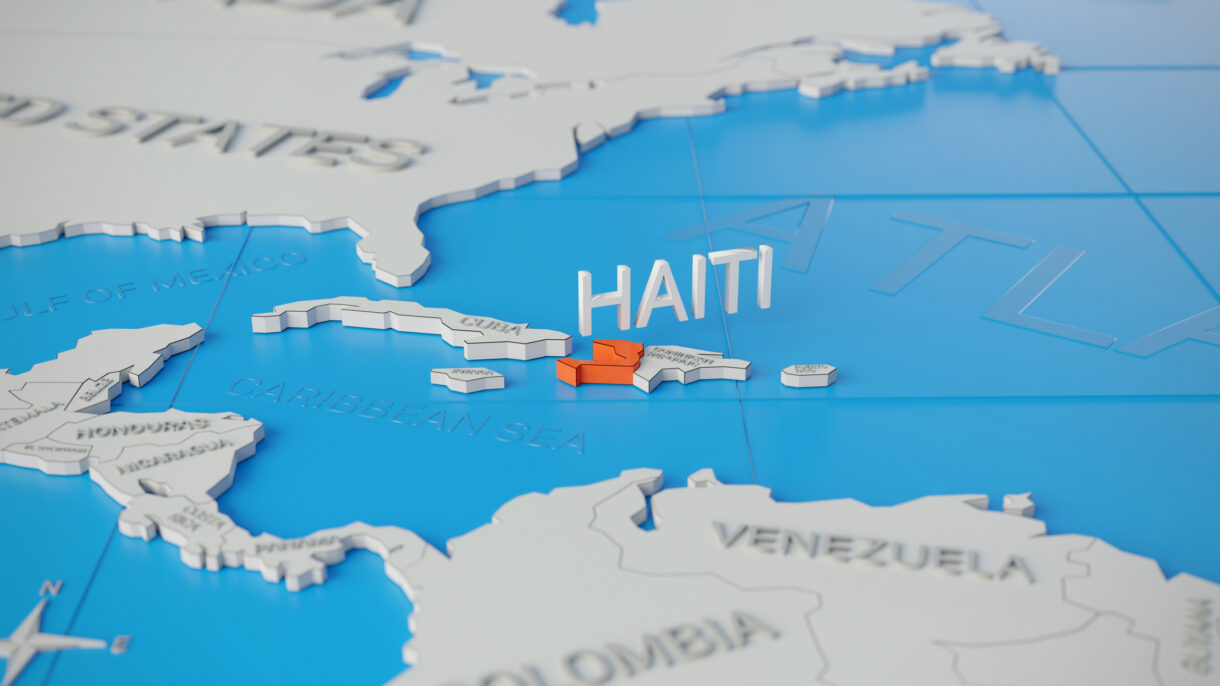In July, thousands of Haitians in the US and around the world protested the violence in our motherland. After months of begging for an intervention, a Kenyan-led UN security mission is in works.
Like many Haitians reading these stories, I wonder: What good is a security solution that doesn’t address the economic roots of the crisis?
Haiti’s real problem is explained in one word: monopoly.
A tiny part of the population controls key industries, killing opportunities for millions of Haitians. No serious account of Haiti’s political and social problems can ignore the near-total consolidation of economic power.
Take the steel industry, controlled entirely by one family: the Bigios. They control Aciérie D’Haiti, and all of the steel operations in Haiti. A few other families control imports of rice, cooking oil, and other key goods and sectors. When every entrepreneurial avenue is closed off by monopolies, how can the average Haitian make a decent living?
I was born in ’79, toward the end of the father-son Duvalier regime, which ruled from 1957-1986. In my 44 years, I’ve known vanishingly few Haitians to have found normal jobs or entrepreneurial success in Haiti. If you can’t escape to the US (which entails its own challenges), the options are limited to this: selling cheap exports in the informal economy, working brutal hours in a sweatshop, eking out a meager subsistence on a tiny farm, or death.

Nearly 40 years since the Duvalier regime’s fall—through four decades of coup d’etats and other crises—Haiti is worse off than ever.
The effects of monopoly are severe and compounding. First, the incentive to maintain monopoly leads to anti-competitive practices. Rather than investing in worker’s skills or other kinds of innovations, monopolies look to lower costs, raise prices, and further exploit their market position. (US readers need only consider their internet service providers for a reminder of how monopolies impact consumers).
Without competition, there’s little room, or incentive, for collaboration. Industry partnerships that might enhance the capacity of other firms become risks rather than synergies. Without energetic competition and collaboration, we see an erosion of pluralistic institutions (think industry associations or chambers of commerce). Without these institutions, it becomes impossible to coordinate and diversify investment, foster innovation, and optimize economic output at the national level.
Of course, no monopoly goes unchallenged. The more they exploit workers and consumers, the more they encounter resistance. This is why monopolies need political corruption (if not over dictatorship) to survive.
The US State Department has recognized the links between Haiti’s political and business elites and the armed gangs. Just a few weeks ago, the Canadian government sanctioned Gilbert Bigio (of Aciérie D’Haiti) and several other businessmen accused of supporting the gangs.
This is good news, but a few sanctions (and even a security mission) won’t cure what ails us.
Over 200 years of Haitian history, economic monopoly has been a constant. But this was never inevitable. Other nations recognized and responded to the threat of monopolies, from the Dutch West India Company, to Bell Atlantic, to Meta.
In 1915, the US Congress established the Federal Trade Commission, creating an institution with an explicit mandate to curb monopoly power. Today, the European Commission antitrust inquiries into Microsoft and other tech companies show a clear commitment to competition.
While the international community debates Haiti’s future, let’s make one thing absolutely clear: Monopolies have always been a driving cause of Haiti’s problems; they were never just a symptom.
If we’re serious about meaningful change in Haiti, any further international interventions needs to squarely target Haiti’s monopolies.
My next blog posts will go into detail about potential solutions. For now, here are four things that Haitians and the international community can do:
- Ensure that the UN-approved mission to Haiti eliminates the gangs and prosecutes their leaders and financiers. Any security intervention must have a specific, time-bound mandate, limited to reinforcing the National Police. Anything else will only repeat the foreign invasions of the past.
- Hold elections and elect a government with a clear mandate to support and enhance the judiciary. An operational legal structure is fundamental to curbing monopoly power.
- Create a legal body, similar to the US FTC, that outright forbids economic monopolies. This body must carefully regulate industries to protect workers and maintain competition.
- Reform the tax code to encourage entrepreneurship. Our 200-year old tax code is inadequate to curb the power of monopolies.
Each of these steps is extremely difficult. Success is never assured. But other countries have curbed monopoly power and established a competitive economy.
We can do the same.
